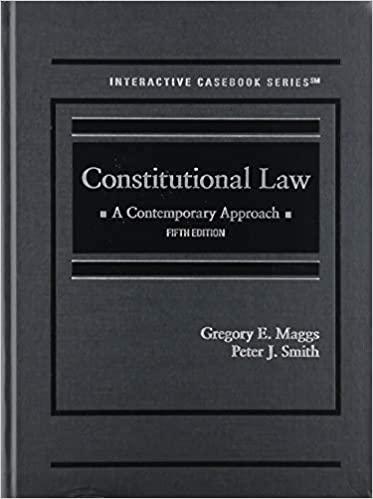Question
Twilight Properties agreed to purchase land on the Vancouver waterfront from the Harbour Commission, conditional upon no changes being made to the zoning bylaw that
Twilight Properties agreed to purchase land on the Vancouver waterfront from the Harbour Commission, conditional upon no changes being made to the zoning bylaw that permitted high-density development for building condominium units. Twilight then began negotiations with the city for a site plan for 650 units. Its chief executive officer, Moon, was very optimistic and immediately offered 500 units for sale. (He had a fallback plan to build only that number if the zoning and site plans were restricted by municipal authority.) Moon obtained agreements to purchase 110 units from individual purchasers, who paid deposits to Twilight of $20 000 per unit. Each contract contained a clause stating
if the development does not proceed in accordance with Twilight Properties' plans, Twilight retains the right to terminate the contract without liability on or before June 30, 2015.
This date corresponded with the closing date in the agreement with the Harbour Commission. Units were to be available, and the deals closed one year later.
On June 30, 2015, Twilight completed the purchase of the lands, but the date passed without any approval of the site plan by the city. At the end of July, the Planning and Development Department of the city approved the site plan and sent it on to the city council. However, in October the city council refused to approve the plan and stated that it intended to reduce the number of units permitted on the property. The council instructed its secretary to write to Twilight and ask whether it would be willing to provide a guarantee to the original condominium purchasers that it would perform its commitments to sell the units should the development be approved. Twilight replied that the city's request was inappropriate and an interference with its private contract rights. At its November meeting, the city passed a more restrictive rezoning bylaw that would permit only 400 units to be built.
Immediately afterward, Twilight returned the deposits of the purchasers and stated that their agreements were terminated; it was not possible to proceed with the project as planned. The unit purchasers sued for breach of contract. Twilight defended by claiming that their contracts were frustrated by the actions of the city. Summarize the arguments for each side, and give your opinion about who should succeed.
Step by Step Solution
There are 3 Steps involved in it
Step: 1

Get Instant Access to Expert-Tailored Solutions
See step-by-step solutions with expert insights and AI powered tools for academic success
Step: 2

Step: 3

Ace Your Homework with AI
Get the answers you need in no time with our AI-driven, step-by-step assistance
Get Started


